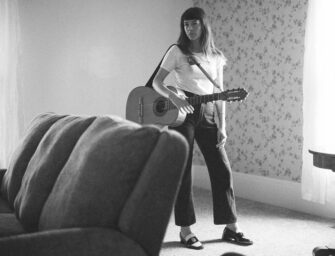One-third of Motown hitmaking trio Holland-Dozier-Holland explains how to create the perfect collaborative environment and write songs as a team
Born in 1941 in Detroit, Michigan, Lamont Dozier made his first record aged just 15 years old and cut his first single aged 17. But it was his decision to join Berry Gordy’s fledgling Motown label, that led to him meeting fellow employees Brian and Eddie Holland, forming an astonishingly fruitful, creative union.
Between 1963-67, Holland-Dozier-Holland penned no less than 46 Top 10 singles beginning with the sublime Where Did Our Love Go? for The Supremes and that was the first of 13 consecutive No 1s for the group, all of which were produced by Holland-Dozier-Holland.
As well as being a member of the Rock ‘n’ Roll and Songwriters Halls Of Fame, Lamont received – along with the Holland brothers – the Special International Award at the 2004 Ivor Novellos and, in 2009, was the recipient of the Johnny Mercer Award, one of the highest honours for a songwriter.
With such an acclaimed and extensive career under his belt, we knew Lamont Dozier would be the perfect person to share his knowledge of what makes the perfect writing session…
Read more songwriting tips here
How do you find the right team members?
“First of all, I write lyrics and music so I have never looked for team members. They just have happened on me by circumstance. My experiences have always been trial and error, with the ones that work being someone who is like a mind reader, knowing what I am feeling and wanting to express, and they just start playing what I am thinking the song needs or writing the words that I myself cannot express! And it’s a special relationship that’s got a lot of spiritual aspects to it as I believe higher sources are influencing the writing, and when it flows out of you, you kind of know that’s what’s going on. So if you’re with someone who’s on that level, and you’re able to create together, it just happens.”
How do you know if the chemistry is right?
“Collaboration is a relationship like between lovers. It’s very special and can only work if each is bringing their 100 percent to the relationship. The chemistry is right when things just click and you respect what each other is bringing to the song, and you can be honest about how you feel about the contribution and take the criticism yourself when the other party has something to say to you about it all as well.”
Is it important each member has a defined role in the writing process, or should it be fluid?
“I think it should be fluid. In my case, I write everything, but when someone else has an expertise in one area or another, or they are like me and do it all, we just decide what sounds the best for the song and the artist/project we are either specifically writing it for or hope to pitch. Long ago when I was writing and producing with Brian and Eddie Holland, we had very defined roles once HDH started going. I was the idea man who came up with the song musically and lyrically, and then Brian would jump on the piano and add to it. We’d go into the studio and cut the track, and then I’d start the lyrics and hooks, and give Eddie the assignment of finishing it off. Then in the studio, he would guide the lead vocalist into a great performance, along with Brian and myself, and then I would do the background arrangements and teach the parts to the artists. We were a well-oiled machine back in the day. I don’t know if that process works these days. I’ve never had that experience again after leaving the Holland brothers.”
What should you think about when choosing artists/projects to write for?
“I am attracted to a ‘sound’ of the artist when choosing a singer. Someone with a unique sound and style always draws me in and it becomes a wonderful challenge for me to be able to help them create a persona for their audience with a great song and production to indelibly make a mark in the business!”
Should you specialise in a style, or be willing to write for any situation?
“I am always open to any style or situation. But in many cases, a writer knows their own strengths and should stay in that area if they know they wouldn’t be right for something else. I have always been challenged to contribute to whatever I’m asked to do, even if it’s different than I am used to. And I feel I’ve done some really interesting new work in those cases. I can think of one recently… Trombone Shorty asked me to write a melody and lyrics to a track. It was catchy and I loved the track, but it was really a different kind of song than I was used to writing, so I drove around in my car and listened over and over to the track for a few days, and then suddenly I found a way into the song. I am proud to say that I feel I did a great job with the melody and lyrics I brought to the table for it. The song is called Encore.”

Lamont Dozier: “I don’t believe in writer’s block. I always write through it, and that is just my philosophy and practice.”
Should you treat a writing session as a blank canvas, or bring some ideas to the table?
“I always bring a few ideas to the table & have them in my back pocket, it’s kind of my security blanket. However, inevitably I end up working on the blank canvas with the other writer. It’s like I get a feeling from them on a spiritual level of what they are trying to achieve, and I pick up the energy and just start playing and writing and we connect and it always ends up being a mutually satisfying writing collaboration.”
What’s the first thing you should do in a session?
“It’s never planned but in looking back and thinking about it, I probably talk for a little bit, and am sitting at the piano and then the music just starts flowing out of me and it goes from there.”
Does it help to have the artist/singer ‘involved’ or in the room during a session, or should they leave you to it?
“I love getting a vibe from the artist/singer, but I prefer to write the song, unless they are trying to participate as a writer of course. In the case of Phil Collins and the songs we wrote together such as Two Hearts and Loco In Acapulco, he originally only wanted to act in the movie and not be a part of the songwriting process. But the producers of the film, of course, wanted him to sing a song too, so I had worked out the tracks and melodies and came up with much of the lyrics, but left places for him to contribute, and then brought them to Acapulco where he was filming the movie Buster. We sat back-to-back while I played the songs for him. What I had done was just enough to draw him into the songs where he wanted to participate. Then he just jumped in and started filling in the spaces on the lyrics. He wanted to sing the song Two Hearts and we wanted to get The Four Tops for Loco In Acapulco and the collaboration grew into those hit songs we wrote together.”
What should you do when you feel like a writing session isn’t working? How do you deal with writer’s block?
“I don’t believe in writer’s block. I always write through it, and that is just my philosophy and practice. It’s a work ethic I’ve developed. At Motown, there was no time for writer’s block. You had to deliver the songs or you’d be out. I don’t think any of the staff writers ever suffered from the so-called writer’s block there, there just wasn’t a choice back in those days. When I am teaching students, I always tell them the same thing. I’ve been an Artist in Residence Professor at University of Southern California’s Thornton School of Music, Popular Music Major for several years, and my students know that the only way is to do it that way. Eventually, you just break through the psychological block by continuing to write. It works every time for me and those I teach and/or work with.”
What’s the best thing to do as a team at the end of a songwriting session?
“It’s always good to go home and take a listen to the song a day or two later to make sure it holds up, and then reconvene after talking to make sure everyone’s on the same page. If it holds up, and everyone’s in agreement, then you go on to the next phase of the production and getting either the demo with vocals down to present to the artist, or if it is already there and ready you take the next step in the process. Everyone needs to be unified in their feelings, that is the key to the success of collaboration in songwriting.”
Lamont Dozier’s album Reimagination is out now. For all the latest info go to lamontdozier.com
You’ll find Lamont’s insights, along with more tips, artist interviews, news, reviews and gear in Songwriting Magazine Autumn 2018
Read more songwriting tips here



































Related Articles